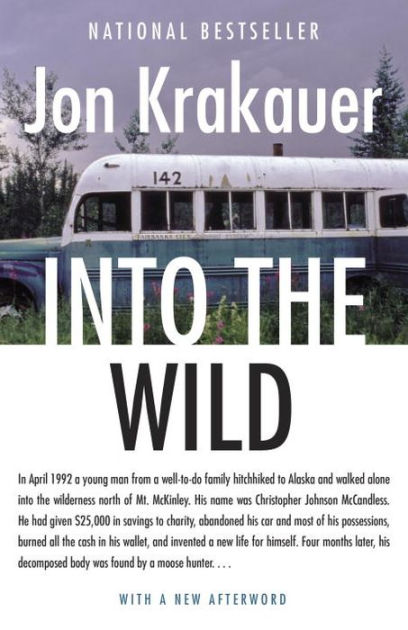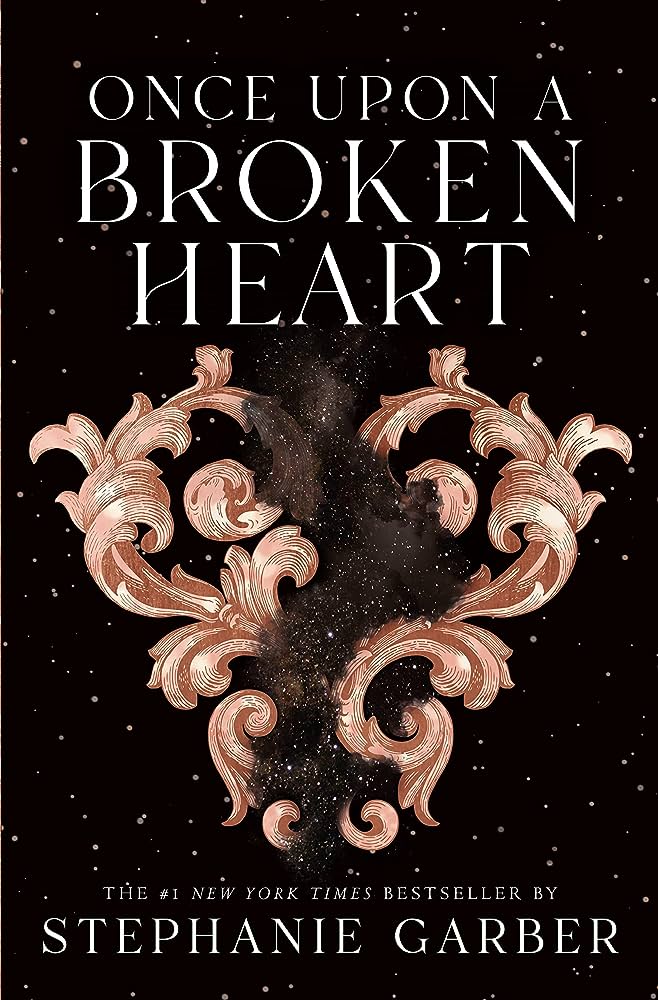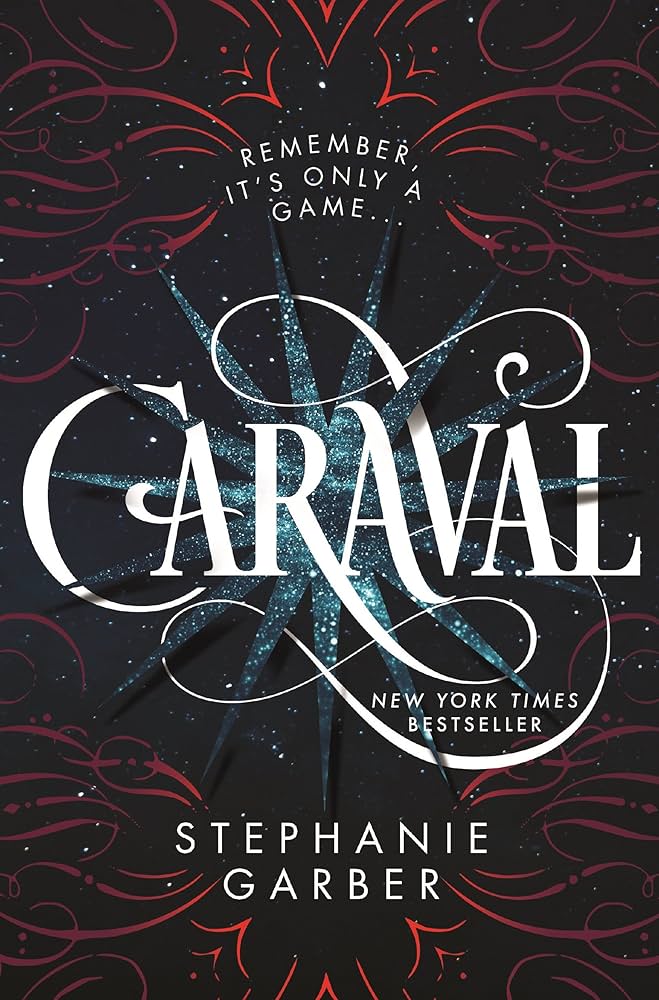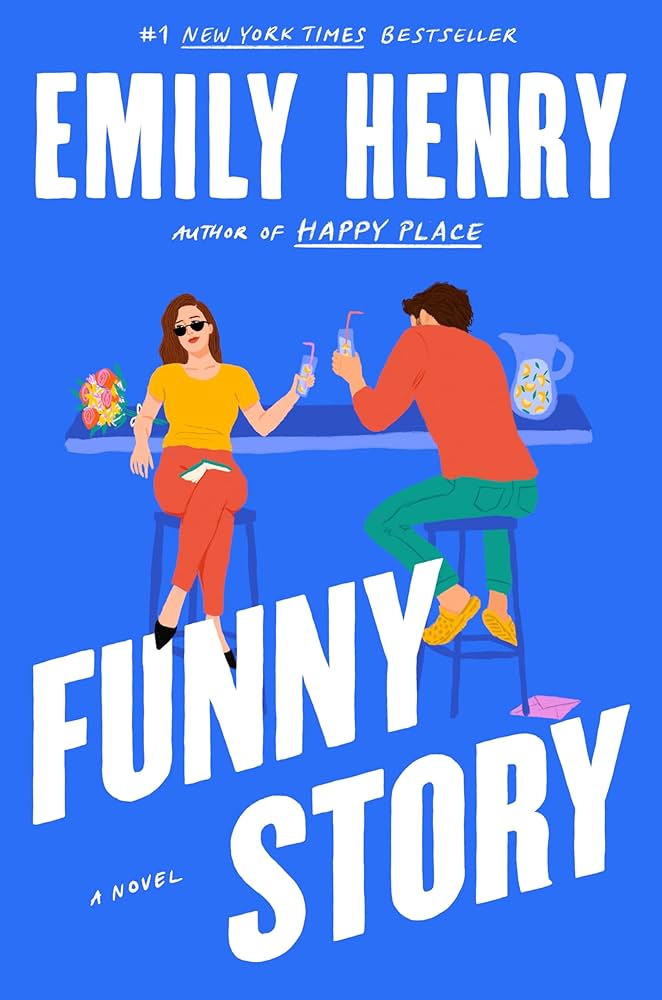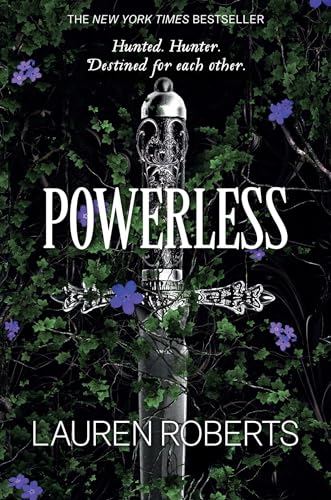AP Lang Reads: Into The Wild – Jon Krakauer
In April 1992 a young man from a well-to-do family hitchiked to Alaska and walked alone into the wilderness north of Mt. McKinley. His name was Christopher Johnson McCandless. He had given $25,000 in savings to charity, abandoned his car and most of his possessions, burned all the cash in his wallet, and invented a new life for himself. Four months later, his decomposed body was found by a moose hunter.
|
Title: |
Into The Wild |
|
Author: |
Jon Krakauer |
|
Publisher: |
Villard Books, Anchor Books |
|
Genre: |
Biography, Essay, Non-Fiction |
|
Pages: |
240 |
As I flipped through the pages of Into The Wild, I was swallowed by remarkable questions such as “What does it mean to truly live? Is it found in the comforts of society or in the wild unknown?” Into The Wild was assigned as the first book in my AP Language class. This book challenged me to think about freedom, materialism, non-conformity, privilege, transcendentalism, and the pursuit of purpose in a way I hadn’t considered before. As we dove into McCandless’s story, I couldn’t help but wonder: what would drive someone to abandon everything for a life of solitude? As I swam to the last pages, the book thoughtfully provoked my thinking process and gave me the answers I yearned for.
Into The Wild is a true story about a man named Chris McCandless who abandoned all his material possessions and embarked on a journey marked by purpose and finding out the true meaning of life. He came from a very wealthy family and embraced a nomadic lifestyle. Chris was charming, intelligent, and good-looking, which were a few of his many privileges. On the lookout for his true identity, wanting to escape from society’s judgment, and searching for an authentic purpose, he treks into the wild without much preparation, money, or anyone to rely on. He cut off communication from all family members and instead relied on the connections he built throughout his expedition. He found that the real meaning of life didn’t always root in possessions and that there was much more to life when you became one with nature. Unfortunately, through his tumultuous voyage, he ended up succumbing to starvation and malnutrition.
The main themes in Into the Wild are non-conformity, privilege, and man vs. society. These ideas are woven throughout the book. Some quotes that stood out to me highlighting these themes were:
1. “On weekends, when his high school pals were attending ‘keegers’ and trying to sneak into Georgetown bars, McCandless would wander the seedier quarters of Washington, charring with prostitutes and homeless people, buying them meals, earnestly suggesting ways they could improve their lives… Chris didn’t understand how people could be possibly allowed to go hungry, especially in this country, he would rave about that kind of thing for hours.”
Unlike most people, he did not care to party or indulge in things against his morals. He abided by his beliefs carefully and strictly. It goes to show that privilege may not have been the leading cause for Chris’s decision to go into the wild; maybe from a young age, he found true light in finding his place in the world.
2. “It was a different story with Alex. He was the hardest worker I’ve ever seen. Didn’t matter what it was, he’d do it: the bottom of the holes—jobs where you’d get so damn dirty you couldn’t even tell what you looked like at the end of the day. And he never quit in the middle of something. If he started a job, he’d finish it. It was almost like a moral thing for him. He was what you’d call extremely ethical. He set pretty high standards for himself.”
Chris’ nonconformist identity peaks out in this quote because most people would avoid doing dirty or laborious jobs, but Chris embraced those jobs. He was a respectful member of his workforce and lent his hand to anyone in need. He pitched in more than was necessary. I chose this quote because it’s a firm example of Chris’s personality; it shows his do-good and moralistic side. I connect to this quote because I find it heroic and powerful how Chris, coming from such a privileged background, continues striving to be a hard worker.
3. “You could tell right away that Alex was intelligent,” Westberg reflects, “He read a lot. Used a lot of big words. I think maybe part of what got him into trouble was that he did too much thinking.”
Here, Alex’s educational privilege is on display. Because of his wide array of knowledge, especially in literature, he found it easier than most to converse and immerse himself in small talk with others. He had an intelligible, appealing factor to him.
4. “Chris was good at almost everything he ever tried.” Walt reflects, “which made him supremely overconfident. If you attempted to talk him out of something, he wouldn’t argue. He’d just nod politely and then do exactly what he wanted.”
This quote explicitly explains why Chris McCandless ended up in this situation of unpreparedness. Chris was always a bright child, another one of his privilege. He always nailed down everything he did without failure. This led him to believe that he would be easily able to live in the wild without any mental or physical preparation.
5. “Why would anyone intending to ‘live off the land for a few months’ forget Boy Scout rule number one: Be Prepared? Why would any son cause his parents and family such permanent and perplexing pain.”
I think this is a significant quote as it highlights the primary thought process of the central following Chris’s story. Even I wondered what could have caused the relationship between him and his parents to become so fragile? or, “were his parents really so terrible, that he caused them so much pain and suffering?” I think these are both very valid questions because I believe if Chris’s final goal was to live his life connected with nature and truly diving into transcendentalism, he could’ve easily left his parents a warning instead of vanishing.
6. “McCandless wasn’t some feckless slacker, adrift and concedes, racked by existential despair. To the contrary, His life hummed with meaning and purpose. But the meaning he wrested from existence lay beyond the comfortable path: McCandless distrusted the value of things that came easily. He demanded much of himself–more, in the end, than he could deliver.
This quote displays how Chris wanted to live his life with true meaning and intention, and while some may say the way he went about this goal was wrong, his core beliefs were something to give respect to. He was utterly ambitious and was a true nonconformist throughout his life. He always wanted to push his boundaries, think outside the box, step past his comfort zone, and experience life’s greater meaning and the power the beauty of nature holds. He embraced transcendentalism and led a life free of materialism but full of purpose.
Something I didn’t enjoy about this book was the number of characters; even though they were very important to this story, I found myself going back and searching for who they were. Also, some of the POV changes were a bit hard to comprehend with ease.
|
Characters: |
4/5 |
|
Setting: |
4/5 |
|
Writing: |
3.5/5 |
|
Plot and Themes: |
4/5 |
|
Overall: |
4/5 |
Although Into The Wild wasn’t the genre of book I would normally pick up, it invited me to indulge in my thoughts and asked me to ponder on my opinion on purpose, meaning, and materials. Into the Wild challenges readers to reflect on the complex nature of freedom, privilege, and the desire for deeper meaning. Through Chris McCandless’s journey, we are reminded that non-conformity often comes with consequences, and pursuing purpose can be both admirable and tragic. I believe that even though Chris McCandless embarked on his journey with the right motives, unfortunately, due to his irresponsibility and maybe even parts of his privilege, his ultimate fate raised questions. Ultimately, his story is a powerful exploration of the human spirit’s search for identity and truth.
